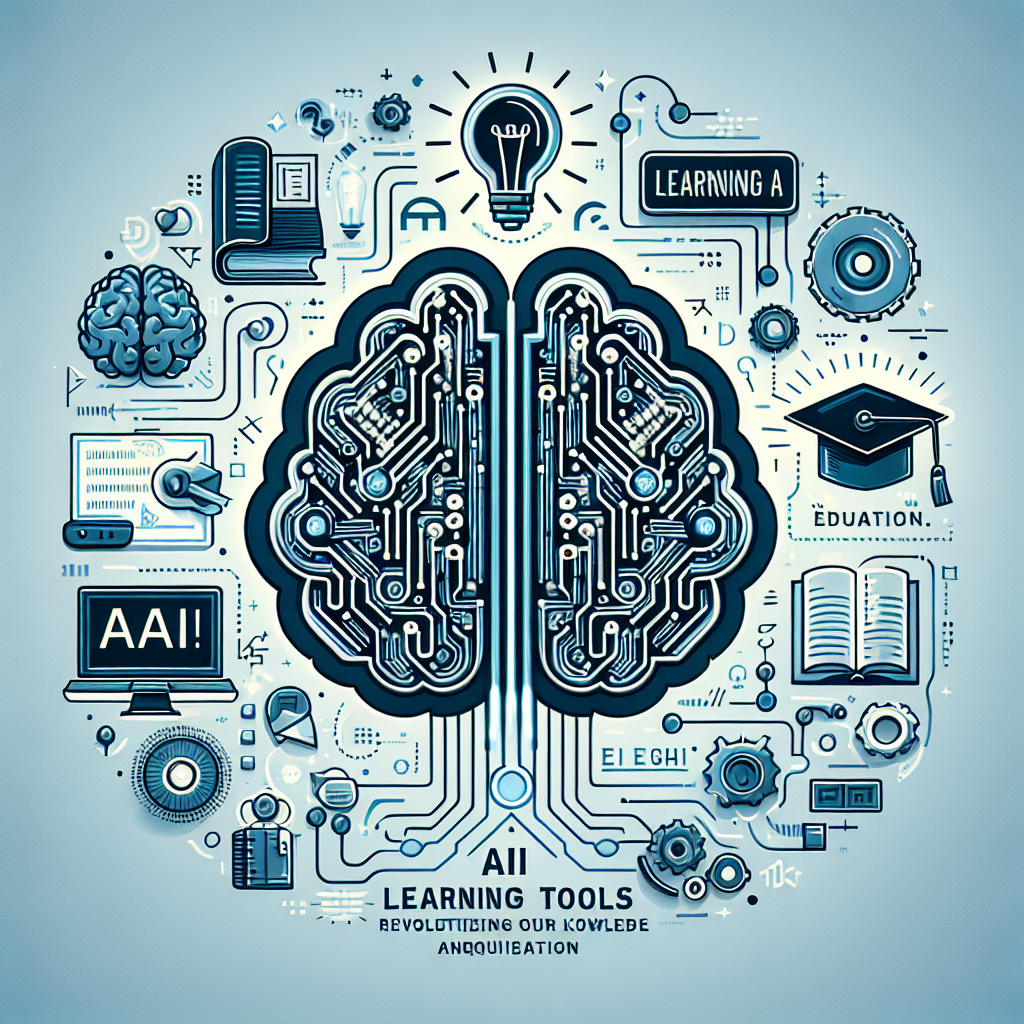In recent years, artificial intelligence (AI) has significantly transformed various sectors, with education being a prime example. As we move further into the digital era, AI learning tools are becoming essential to our educational processes. This shift not only enhances personalized learning journeys but also provides educators with innovative resources to refine their teaching methods.
The Transformation of Learning
Historically, education was predominantly based on textbooks and uniform teaching approaches that catered to the average student. However, the advent of AI is reshaping this landscape. These tools utilize machine learning algorithms to analyze data from students’ interactions, facilitating a customized learning experience tailored to individual requirements.
Personalization at Its Core
One of the standout benefits of AI learning tools is their capacity for personalization. Adaptive learning platforms assess a student’s strengths and weaknesses by analyzing performance and engagement metrics. For instance, tools like DreamBox Learning and Knewton leverage AI algorithms to formulate personalized learning paths, enabling students to progress at their own speed. This tailored approach not only boosts engagement but also deepens comprehension of the subject matter.
Intelligent Tutoring Systems
AI-powered tutoring systems are revolutionizing the landscape of one-on-one instruction. Services like Carnegie Learning and Squirrel AI offer real-time feedback and assistance, mimicking a personal tutoring experience. These tools help reinforce lessons, clarify uncertainties, and target specific learning gaps. Consequently, students receive essential guidance while educators can concentrate on broader instructional strategies.
Gamification and Engagement
AI also plays an essential role in gamifying educational experiences. Platforms like Kahoot! and Quizlet utilize the motivational elements of gaming, enhancing engagement in the learning process. AI algorithms can monitor user interactions, dynamically adjusting the difficulty of quizzes and games in real-time to sustain an optimal level of challenge. This active engagement fosters a passion for learning while reducing the frustration often associated with difficult subjects.
Enhancing Educator Effectiveness
Beyond benefiting students, AI learning tools enable educators to refine their teaching strategies. Analytics dashboards provide insights into class performance, aiding teachers in identifying trends and areas needing focus. This data-driven methodology enables better decision-making and targeted interventions, ensuring no student falls behind.
Moreover, AI assists in automating administrative responsibilities, like grading assignments and managing schedules. By streamlining these tasks, educators can invest more time in student interaction and meaningful instruction.
The Future of AI in Education
The incorporation of AI in education is merely beginning to explore its potential. Emerging technologies, including natural language processing and augmented reality, are set to further enrich learning experiences. For example, AI-driven chatbots can provide immediate assistance to students, addressing inquiries beyond standard classroom hours. Similarly, augmented reality can create immersive learning environments that simplify complex concepts.
Ethical Considerations
Despite the myriad benefits, the rise of AI in education brings forth significant concerns. Challenges related to data privacy, algorithmic bias, and the risk of excessive dependence on technology must be carefully managed. As AI learning tools gain traction, it is essential for stakeholders to uphold ethical standards to protect student data and promote equitable learning opportunities.
Conclusion
AI learning tools are fundamentally changing the way we seek knowledge, delivering personalized, engaging, and efficient educational experiences. As technology continues to advance, it will be crucial for educators, students, and policymakers to collaborate in addressing the challenges and opportunities that emerge. By doing so, we can fully harness the potential of AI to build a brighter and more inclusive future for education.

